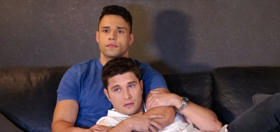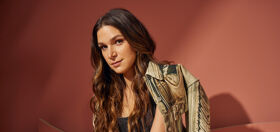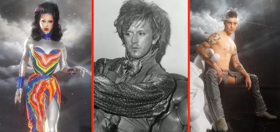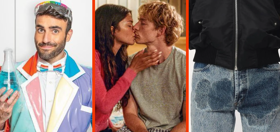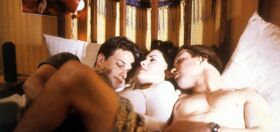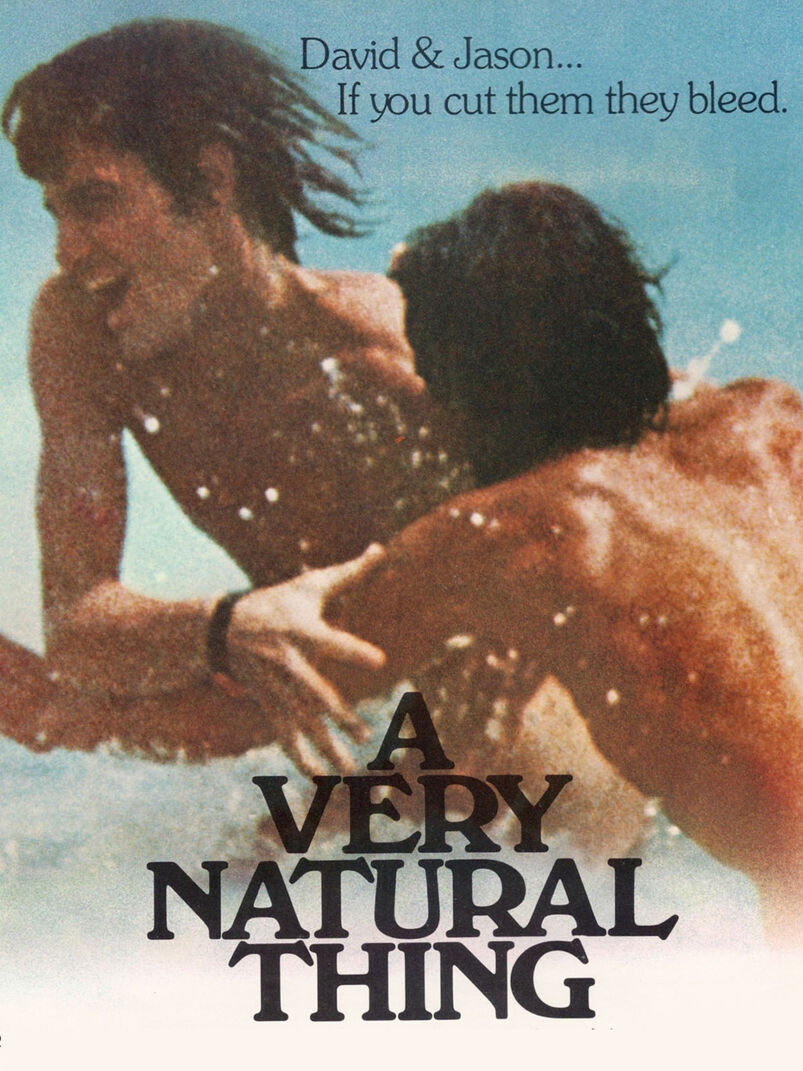
Welcome back to our queer film retrospective, “A Gay Old Time.” In this week’s column, we revisit 1974’s A Very Natural Thing, considered to be one of the first films about gay relationships to receive a commercial release.
Throughout film history, queer cinema has always been considered “radical” in some way or another. Particularly in the early years—when visibility and representation was not just inexistent, but forbidden—LGBTQ+ characters had to be sidelined, punished, or erased. Films by and about our community had to exist outside the mainstream filmmaking norms and processes.
Because of the real-life separation between us and the rest of society, films tended to portray us and our lives as something alternative, separate, or othered. It wasn’t always in an antagonistic way (though rare, many portrayals could be quite sympathetic), but there was not an integration between an “us” and a “them” until quite recently. We’ve talked about this division in other films in this column like Cruising, Staircase! and Sticks and Stones.
This week, we’re touching on a film that was also radical in its representation of the queer community, but not because of the limited circumstances it had to be made around, or the way it isolated queer characters and narratives—because of the exact opposite.
The Set-Up
1974’s A Very Natural Thing was one of the first films directed by an openly gay man (Christopher Larkin) featuring gay characters that received mainstream distribution in the U.S., and whose portrayal of the protagonist and his romantic relationships are portrayed as something shockingly similar to (even more, as simply just another variation of) a straight marriage. This was something unheard of at a time where queer characters were confined to underground bars or as the butt of a joke about how we’d never be able to assimilate.
A Very Natural Thing follows David (Robert Joel), who at the beginning of the film is leaving the priesthood to lead a more authentic, open life in New York as a gay man. There, he finds a community of queer friends and begins dating and exploring the gay scene.
He soon falls in love with Mark (Curt Gareth), and the two quickly move in together and lead what is in all intents and purposes a married life. However, Mark realizes he needs more than just David to be fulfilled, and after a few failed efforts to spice up their sex life, they separate. In the end, David finds Jason (Bo White), who is more suited to his wants and needs, and the two end up together while romantically frolicking on a nude beach over Labor Day weekend.
Love & Marriage
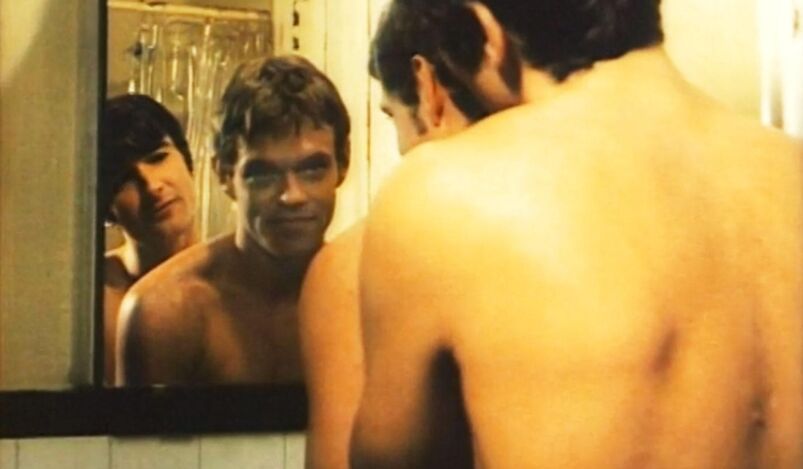
Like many other aspects of this film, the story is refreshingly simple and straightforward. You couldn’t fault someone for calling it somewhat predictable, or even tame. It focuses on the ups and downs of David and Mark’s relationship: their courtship, move-in together, troubles, and eventual dissolution. It ventures into other aspects of their life (mostly their friendships), but it is all about how they move through the world as a couple, how it works out, and how it falls apart.
What feels so new and different about their relationship is how it’s framed as a marriage. Even though it would still be many decades before gay marriage was legalized, the characters act and even call the relationship they enter a “marriage”. There is no point of hesitation or doubt about doing so; that’s what they are to each other and that’s what they act like. David and Mark are just another couple that, like many others, end up getting a divorce after a rough patch.
Sex & Swinging
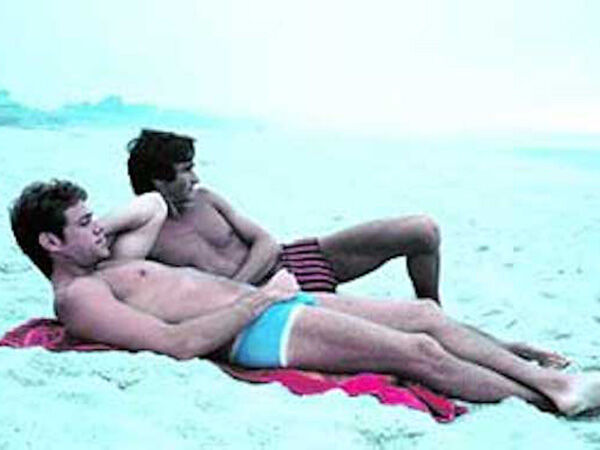
The film udnerscores the commonality of this narrative (one that had been told over and over for decades in Hollywood) not only with the plot, but also in the way it’s directed. Larkin frames and films this as a romantic drama not unlike any other big studio romance or melodrama. It has swelling music in big moments of emotion, there’s a montage of David and Mark’s daily married routine, and the sex scenes are surprisingly erotic, tender, and explicit.
However, as normalized and “assimilated” as the couple seems to be, David and Mark never lose their queerness. The movie pulls off a tricky balancing act of incorporating the characters into traditional standards while keeping their gay identity intact. They may be married, but they are not a straight couple. They remain authentically gay.
Their dinner parties are attended by other gay friends and occupied by queer gossip. They go to sex parties, bathhouses, and getaways to Fire Island. They freely discuss opening up their marriage, and try threesomes and orgies. They do poppers while having sex.
Assimilation Or Liberation?
A Very Natural Thing is not only radical in its framing of a committed gay relationship, but also its depiction of queer life as incorporated into it. There is a seamless marriage (no pun intended) of assimilated and authentically queer lifestyles. The movie does not say that one has to get rid of their queerness in order to fit in with the tradition of marriage. You can have both.
Gay critics at the time argued that the film didn’t engage with the political moment, and straight up rejected the sexual liberation movement that did so much to advance the fight of the community. And there is some truth in how the tameness of the film refuses to engage with the thornier and complex issues on the values and consequences of assimilation.
But looking back, and taking into account a cinematic history that is still struggling with the depiction of gay couples as an either/or between “We are just like you!” and “We will never be like you!” stances, it feels groundbreaking that a film in the mid-’70s was able to achieve that balance so well. Yes, we are just like you; we fall in love, and we fall out of love. But we do it in our own unique way.
A Very Natural Thing is now streaming through Fandor, Freevee, and Tubi. It’s available for digital rental or purchase via Amazon Prime Video, AppleTV, Google Play, and YouTube TV.







